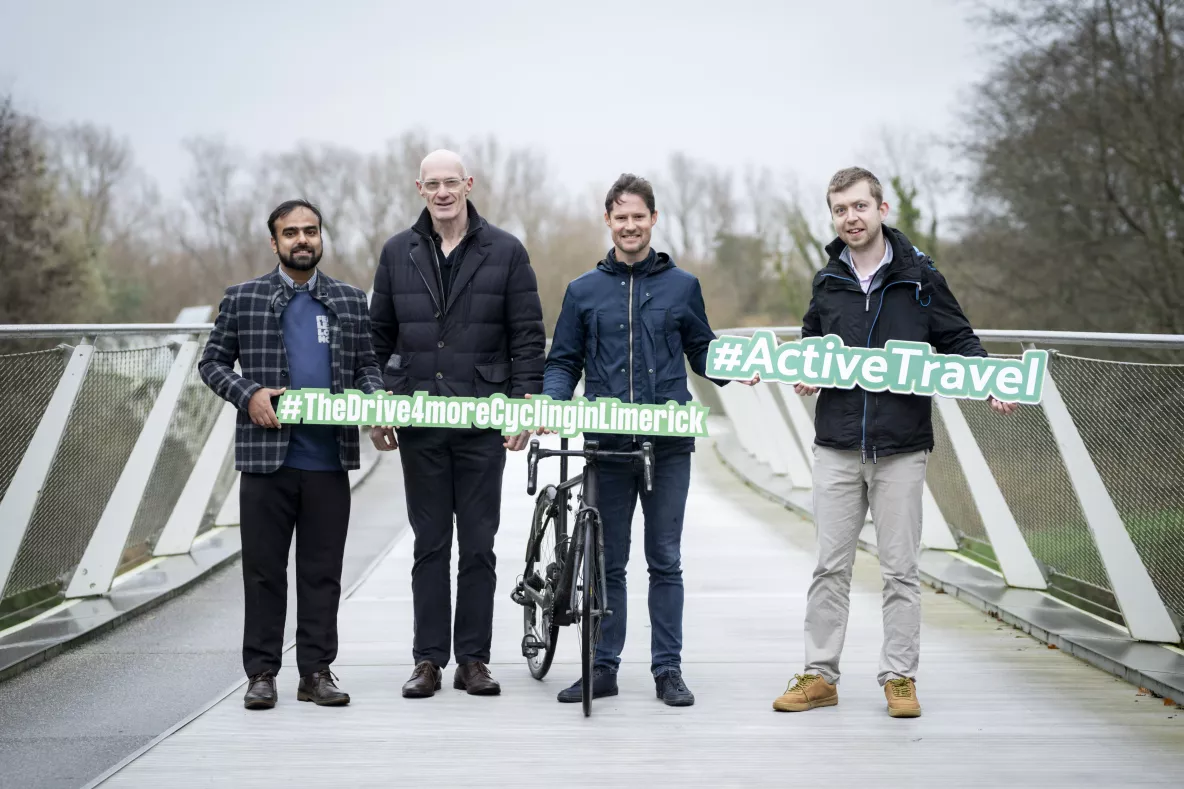
Researchers at University of Limerick are engaging with Limerick City and County Council’s Active Travel team to conduct detailed analysis into the potential of cycling across the city.
The project, entitled The Drive for More Cycling in Limerick, will involve the completion of a number of projects aimed at understanding perceptions of cycling infrastructure within Limerick specifically.
Bike parking innovations and the feasibility of sustainable logistics facilities in the city will also be explored throughout the duration of the research.
Limerick City and County Council is one of just two local authorities in the country to receive approval from the National Transport Authority (NTA) to fund research specific to the local area.
The findings from the research will be shared and discussed with the Active Travel team on a regular basis, which will help to form the basis of proposals to continue to enhance and upgrade Limerick’s cycling infrastructure.
Senior Engineer with the Active Travel team at Limerick City and County Council, Sean McGlynn, commented: “We are very excited about the beginning of this new partnership with our colleagues in UL. As we continue to expand the rollout of high-quality Active Travel schemes across Limerick, we want to ensure we have the most up-to-date data and information to do it as well as we can.
“Understanding public perceptions of cycling in the city is particularly significant for us, as we want to continue to bring people with us on the journey to upgrade our infrastructure. Having analysis of local views and trends will be invaluable to our engineers and technicians going forward as they continue to formulate proposals for the city.”
The collaboration with UL follows the beginning of air quality monitoring and the installation of radar traffic counters from the Active Travel team in 2023.
Lecturer in Civil Engineering at UL, Ross Higgins, who will lead the research, explained: “Work on the project has already begun and UL has hired a full-time research assistant as a result of the funding provided through the Active Travel team.
“We will be assessing the barriers to decarbonising our transport infrastructure in Limerick and how to address that throughout or research. We will also be looking at evaluating existing cycle parking around the city, as well as how the possibility of ‘micro consolidation hubs’ - effectively neighbourhood scale storage and distribution hubs for last-mile deliveries – may work in Limerick.
“We look forward to working hand in hand with the Active Travel team going forward, during what’s a really important stage in encouraging a modal shift, as per local and national transport policy.”
The research will take place for a duration of 24 months, with findings to be collated thereafter.